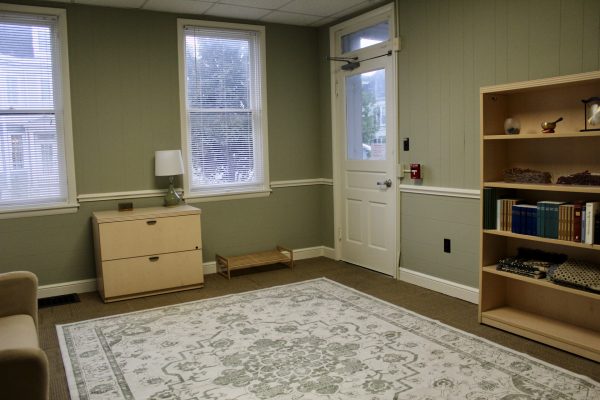Clubs Required to Comply with New Leadership Guidelines
New student leadership guidelines require mandatory training sessions for clubs to receive an annual budget, a change that has received mixed reviews by club officers.
Student Leadership and Campus Engagement (SLCE) organized a new program to encourage leadership skills of club leaders. According to Josh Eisenberg, assistant dean of student leadership, the Club Executive Program teaches students how to lead meetings, write agendas, develop member accountability and resolve conflict.
“If students can learn those hard and soft skills while leading their peers in extra-curricular clubs it will set them up for additional success when they leave,” Eisenberg said. “We understand student frustration when any new expectations are placed on them.”
The program was passed by Student Senate and requires club leaders to register their clubs in the Dickinson club portal EngageD. Students must also attend a screening of a National Society of Leadership and Success broadcast, complete an online web survey about leadership and attend five leadership workshops. Club leaders are required to complete all tasks before they can apply for their annual budget. Club officers can replace two workshop credits by attending a specialized leadership retreat.
Madison Milaszewski ’19, president of the College Democrats, said, “The credits aren’t too bad. Some of them are easy… but the principle of needing to complete something is a bit silly.” Milaszewski said it’s hard for many of the executive board members who are seniors to be motivated to complete the requirements.
Program coordinator of SLCE Jessee Vasold said, “I estimate that it would take a club (not each executive member) less than nine hours a year to complete [the program].”
Eisenberg said, “Because of the timeline of the resolution we weren’t able to fully outline the requirements and implement them until the semester began.”
Greg Edwards ’20, president of Spectrum, Dickinson’s queer student union, attended a leadership training session in September and said he thought it was a good experience. “I learned a lot of crucial information about the importance of diversity and inclusion,” Edwards said, “so it was an important and fulfilling experience.”
Edwards added “I feel like if these workshops really did have valuable information… making them optional should not reduce their attendance and effectiveness by that much.”
Amanda Parker ’21, who serves on the executive board for Red Devil Cheerleading and Tritons, said she feels the new training sessions will be helpful. “I know that executive boards are a lot of responsibility because you are representing your organization and I think the extra help will be good,” she said.
Rose Lang Zalph ’21, who is on the executive board for the equestrian team, said she thinks the idea of leadership training is good but not the time commitment. “I think five [workshops] is a big number…I’m involved with six different clubs and I know if I had to go to extra workshops I definitely wouldn’t sleep,” she said. “It could be a really good opportunity for people who are on exec [boards] who have a leadership role… but I definitely think for people who are new to leadership would benefit.”
Some student-led groups on campus like Run with It, Dickinson’s student-run improvisational comedy team, choose to go unrecognized by Student Senate as an official club. The group’s executives do not have to partake in the student leadership program and they do not receive a budget from Student Senate.
Jonathan Long ’19, artistic director of Run With It, said in an email that the group thinks the required training sessions “would be ineffective and unrelated to leading an improv troupe.” The email was written collectively by the ten members of Run With It.
Going unrecognized “also gives us a self-ordained free pass for our poster choice,” Long wrote. “We put whatever we want on them and put them wherever we want.” Long and the group further explained, “It would be nice to not have to pay for our own posters and candy… We’ll see how lazy we are feeling in a few months.”
Eisenberg hopes that the new leadership program and help from SLCE staff will prove effective and “…are sustainable so when a president returns to campus in 10 years their club is still thriving.”



